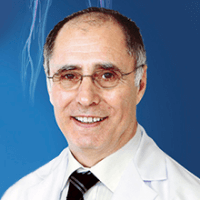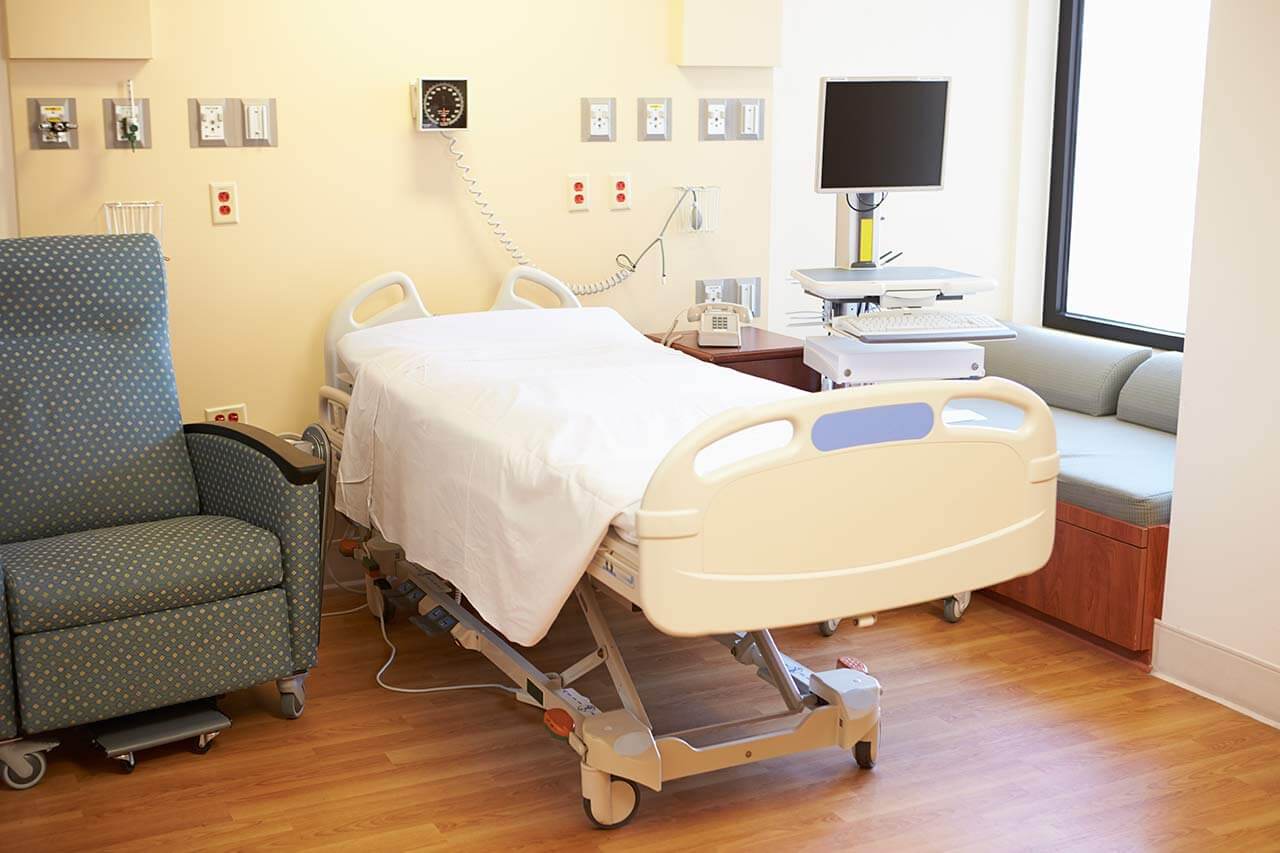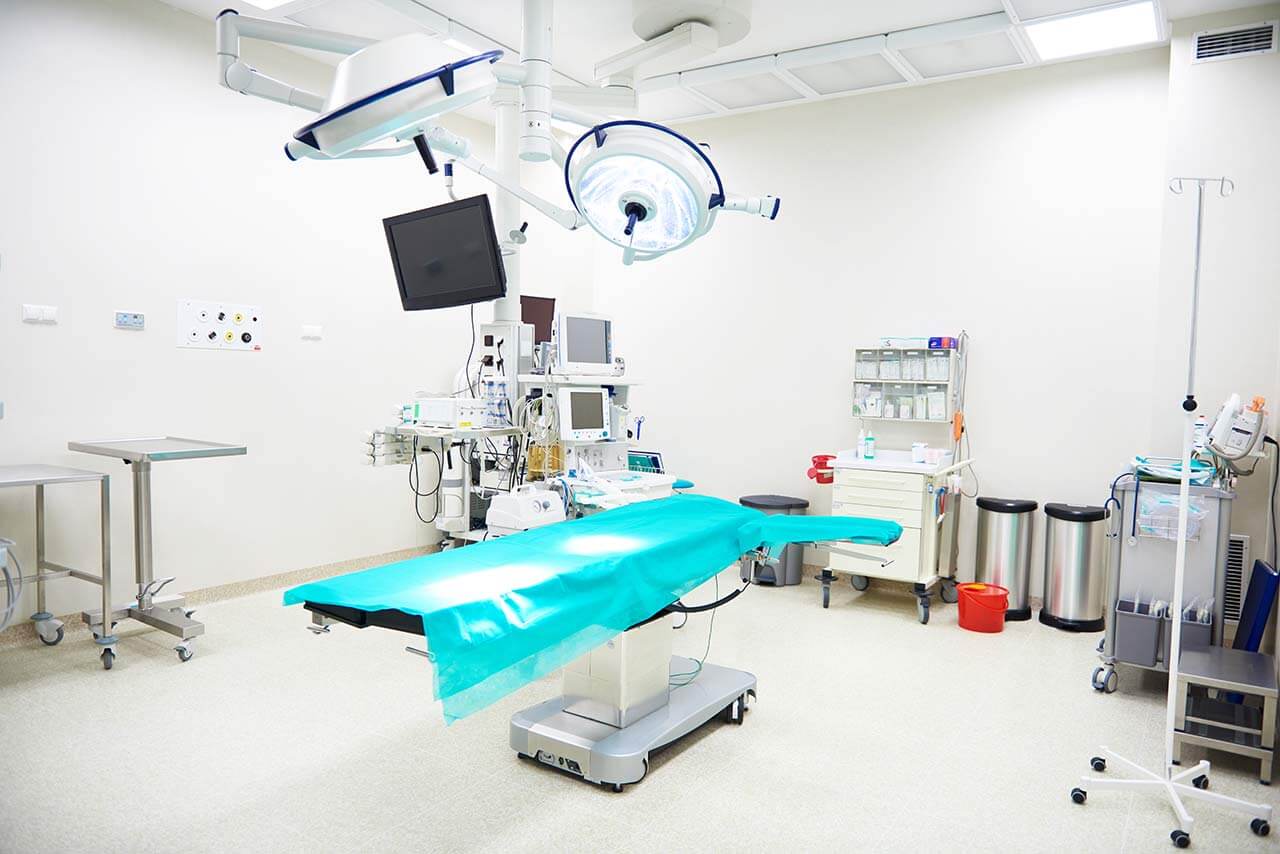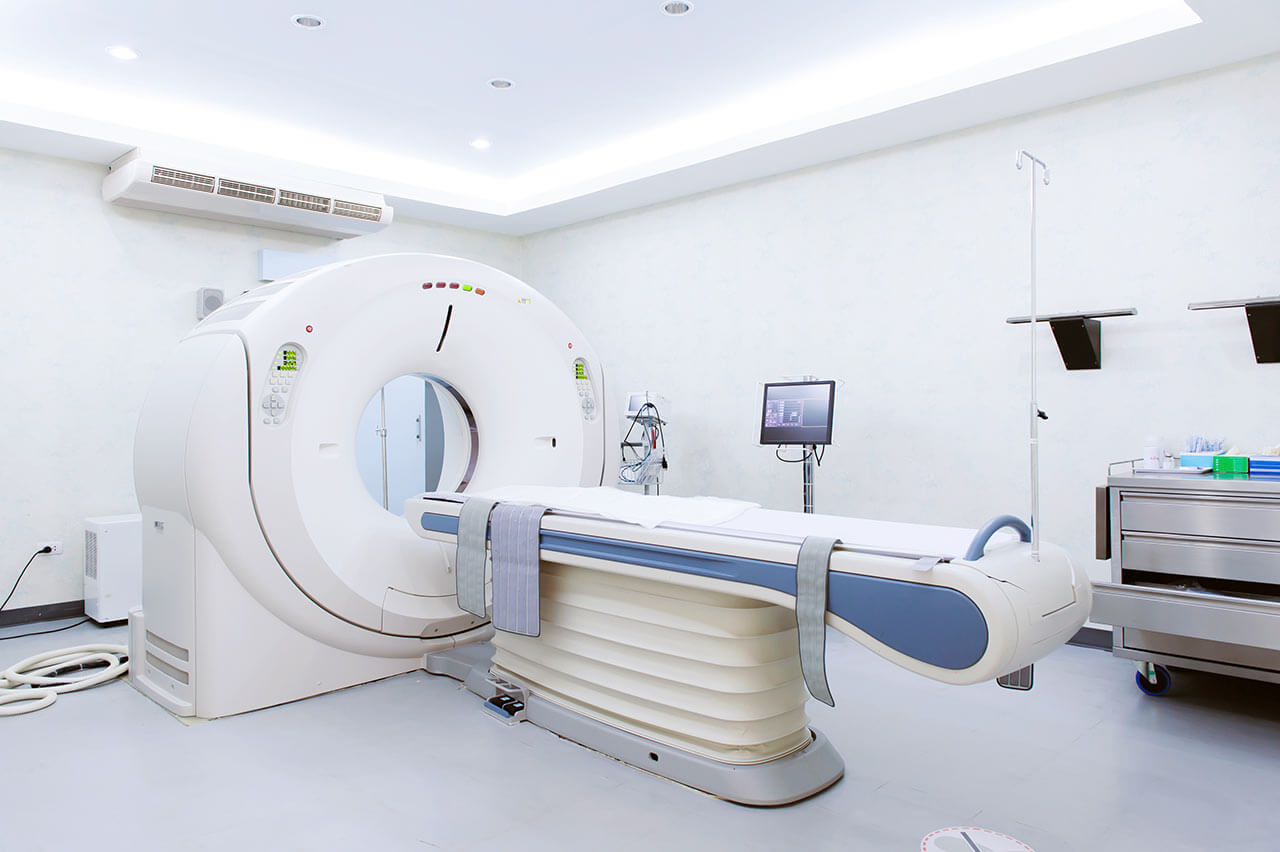
The program includes:
- Initial presentation in the clinic
- clinical history taking
- physical examination
- laboratory tests:
- complete blood count
- general urine analysis
- biochemical blood test
- tumor markers (CEA, CA19-9, AFP)
- inflammation markers (CRP, ESR)
- blood coagulation analysis (aPTT, PT, INR)
- ultrasound of the abomen
- CT of the abomen
- FNA liver biopsy under CT control (if clinically indicated, additional cost is 3500€)
- nursing services
- services of all leading experts
- explanation of individual treatment plan
Required documents
- Medical records
- Abdominal ultrasound (if available)
- MRI/CT scan of the abdomen and pelvis (if available)
Service
You may also book:
 BookingHealth Price from:
BookingHealth Price from:
About the department
The Department of General Surgery at the Medicana International Istanbul Hospital offers the full range of surgical treatment of diseases of the bowel, liver and other abdominal organs, as well as thyroid gland. In addition, the department performs successful kidney transplantations. The surgeons of the department have at their command advanced medical equipment, therefore, most operations are performed using the very latest minimally invasive techniques. It should be separately noted that the department employs highly qualified specialists, who are well-known not only in Turkey, but also far beyond its borders. The department is headed by Prof. Dr. med. Muzaffer Sarıyar – a highly specialized surgeon, who has enormous clinical experience and outstanding treatment results.
The main focuses of the department’s specialization include:
- Surgical treatment of hemorrhoids (hemorrhoidectomy) implies a surgical removal of hemorrhoids and stapling of the hemorrhoidal plexus (stapled hemorrhoidectomy). In addition, the department performs minimally invasive procedures for the treatment of hemorrhoids. The most modern and effective of them are ligation with latex rings (one or two latex rings are placed on the base of the internal hemorrhoid to stop its blood supply, after which the hemorrhoid is reduced in size and eliminated), sclerotherapy (the sclerosing chemical agent is injected into the hemorrhoidal tissue, which contributes to the reduction of its size and the formation of scar tissue), ultrasound-guided ligation of the artery which supplies the hemorrhoid, infrared coagulation (the vessels supplying the hemorrhoids are coagulated with the infrared rays), laser therapy.
- Abdominal and inguinal hernia repair. Before a surgical intervention, the preparatory stage is necessarily required, namely surgical hernia reconstruction (under the general anesthesia). During such preparation, a surgeon performs a series of examinations and determines whether the current state of the patient's health allows for the surgical treatment, as well as identifies and treats the diseases, which may pose a threat during the surgery. Hernia repair is performed under general anesthesia using an open surgery. During the open surgery, the surgeon makes an incision in the abdominal wall to determine the location of the hernia sac. After the extraction of tissues pinched in the hernial sac, he restores a weak area of the abdominal wall. To prevent a relapse, there is placed a supporting material, which is called a mesh. With the appropriate indications, the laparoscopic method can be used as well. During the laparoscopic intervention, the surgeon makes four small incisions on the abdominal skin. Initially, CO2 gas will be injected through one of these incisions into the abdominal cavity. Then a camera is inserted into the abdominal cavity. Other incisions are used to place surgical instruments inside the abdominal cavity. The purpose of the hernia repair is to restore the weak area of the anterior abdominal wall and create the support for it. To consolidate the result of surgical treatment, the patient should strictly follow his physician’s recommendations.
- Laparoscopic cholecystectomy (gallbladder removal). This procedure is performed under general anesthesia. In order to develop a surgical plan, the surgeon carries out a series of examinations and determines whether the current state of the patient's health allows to perform this intervention. The laparoscopic cholecystectomy is a minimally invasive surgical procedure. During the intervention, the surgeon makes four small incisions on the abdominal skin. Initially, the CO2 gas will be injected through one of these incisions into the abdominal cavity. Then a camera is inserted into the abdominal cavity. Other incisions are used to place surgical instruments inside the abdominal cavity. When the gallbladder is carefully excised or separated from the surrounding tissues, it is placed in a bag called "extraction" and removed from the abdominal cavity through one of the small incisions. Before the procedure is completed, the surgeon checks the patient's biliary tract and examines it for any gallstones in the abdominal cavity, as well as a bile leakage.
- Thyroidectomy (thyroid removal). This operation is performed to treat increased hormone levels (hyperthyroidism), thyroid nodules, thyroid and goiter cancer – benign thyroid enlargement. Based on the surgeon's assessment, a significant part of the patient's thyroid gland will be removed, however, a small part of the gland will remain in the body (subtotal thyroidectomy), or partial thyroidectomy can be performed, or the thyroid gland can be removed totally (total thyroidectomy). In the case of total thyroid removal (total thyroidectomy), the patient will need to take medications with thyroid hormones lifelong. The operation is performed under general anesthesia. When performing thyroidectomy, preference is mostly given to traditional surgical intervention. Recently, endoscopic surgery is used as an alternative technique too. The surgeon makes an incision at the neck base and provides the access to the thyroid gland.
- Kidney transplantation in acute kidney failure. The kidney transplantation may be performed either from a living or deceased donor. When performing kidney transplantation from a living donor, surgeons use laparoscopic techniques, which helps minimize postoperative complications and pain. During the operation, the donor kidney is located in the lower part of the abdominal cavity. The vessels of the donor kidney are connected to the vessels of the recipient's kidney, while the ureter of the donor kidney will be joined to the bladder. When blood flow in the donor kidney is restored, it begins to filter blood and excrete metabolic products with urine. A kidney transplant operation lasts 3-4 hours.
- Other surgical interventions
Curriculum vitae
Education and Professional Experience
- 1971 - 1976 Istanbul University, Cerrahpaşa Medical Faculty (Istanbul, Turkey).
- 1976 - 1977 Internship in the field of pancreatic, spleen and liver diseases, St. George's Hospital, London, UK.
- 1985 Researches in Organ Transplantation at the St. Thomas' Hospital, London, UK.
- 1986 Founded the Cerrahpaşa Organ Transplant Center.
- 2007 Founded the Organ Transplant Center at the Medicana Bahçelievler Hospital.
- 2008 Founded the Organ Transplant Center at the Medicana International Istanbul Hospital and currently manages this center and is the Head of the Department of General Surgery.
Photo of the doctor: (c) Medicana Health Group
About hospital
The Medicana International Istanbul Hospital is a modern medical institution, which provides patients with an individual approach, excellent health service and attentive care. The hospital is part of the largest Turkish network of the Medicana hospitals. Due to its long successful clinical activities, this network has won the leading positions in the national and international medical arena. The hospital has the prestigious Joint Commission International certification.
The total area of the medical facility is about 30,000 square meters, it consists of two modern buildings. The hospital has excellent infrastructure, accurate diagnostic systems, unique computerized medical devices. To provide surgical treatment, it has 8 state-of-the-art operating rooms, as well as special equipment for minimally invasive and robotic interventions.
The main focuses of the hospital specialization include liver transplantation, bone marrow transplantation, in vitro fertilization, hair transplantation and treatment of oncological diseases. The hospital annually diagnoses and treats thousands of patients both from Turkey and European countries. It employs the outstanding medical specialists with academic thinking, who use in their work innovative technologies and the very latest drugs, as well as pay due attention to the human attitude and respect for the patient.
Photo: (c) depositphotos
Accommodation in hospital
Patients rooms
The patients of the Medicana International Istanbul Hospital live in comfortable modern rooms designed in light brown colors. The standard room includes an automatically adjustable bed, bedside table, wardrobe, shower, toilet and TV. The patient rooms have the Internet access. The hospital also provides the enhanced-comfort rooms.
Meals and Menus
The patients of the hospital are offered tasty and balanced three meals a day: buffet breakfast, lunch and dinner. Also, with appropriate clinical indications or if desired, a diet, individual menu may be provided.
Further details
Standard rooms include:





